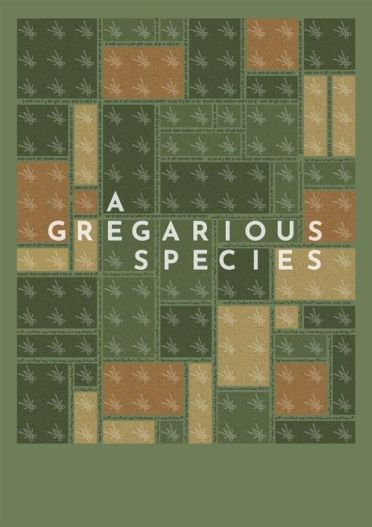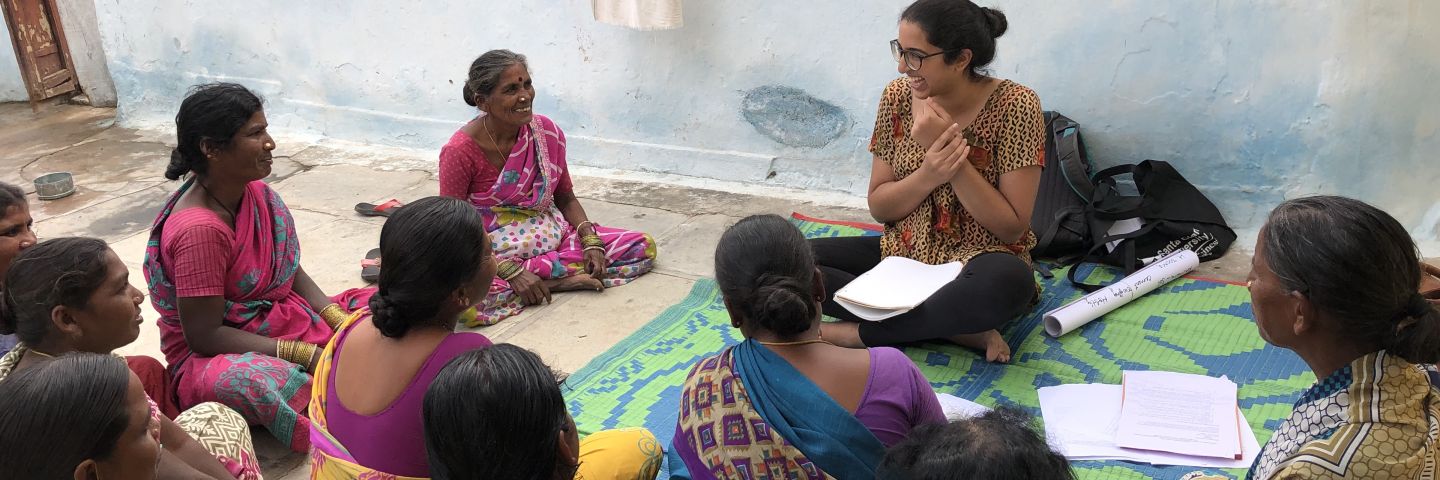"Visual Anthropology Project: 'A Gregarious Species'," by Natasha Raheja, Border Environments, A Special Events Series

February 18, 2021
1:00 pm
Sponsored by the Central New York Humanities Corridor from an award by the Andrew W. Mellon Foundation
This found footage, single-channel video installation contemplates borders, migration, and human-animal relations in the context of bilateral management of “transboundary pests,” particularly gregarious desert locust swarms in South Asia. The piece brings together mobile phone videos of a series of desert locust swarms in 2019 shot by Indian Plant Protection Officers with rumors and allegations that Pakistan (an “enemy state”) sends swarms of locusts across the border to destroy Indian crops. The title, “Gregarious Species” is at once a celebration of the profuse force of human-animal sociality and also a critique of the ways border regimes deny a cross-border sociality to human migrants.
Natasha Raheja is an anthropologist working in the areas of migration, citizenship, and ethnographic film. Her current documentary video project, Kitne Passports? (How many Passports?), visualizes the migration trajectories of Pakistani Hindu families in India from different caste backgrounds. The documentary is a companion to her book manuscript, From Minority to Majority: Pakistani Hindu Claims to Indian Citizenship. The book is an ethnographic account of Pakistani Hindu migration to India and theorizes the flexibility of the religious minority form and the endurance of caste across state borders in South Asia. Together, this work explores the relationships between religious nationalism, state machinery, and modes of cross-border belonging in the context of majority-minority relations in liberal democracies. Extending her interest in uneven mobilities and borders, she is also completing an experimental short film series on the movement of non-human animals and everyday objects across the India-Pakistan border. Films in the series include: A Gregarious Species, Kaagaz ke chakkar, and Enemy Property. As part of her fieldwork, she has conducted collaborative documentary filmmaking workshops with Pakistani Hindu middle-school students to understand and amplify their perspectives on life in India. Professor Raheja’s scholarship has received generous support from the Fulbright Commission, the Wenner-Gren Foundation for Anthropological Research, the American Institute for Indian Studies, the NYU Vice Provost’s office and several other endowments. Her films have screened at colleges and festivals nationally and internationally and my publications have featured in the Journal of Refugee Studies, American Anthropologist, and Visual Anthropology Review.
Co-Sponsored by: Latin American Studies Program, Latina/o Studies Program, Department of Comparative Literature, Cornell Cinema, and the Migrations Initiative
Additional Information
Program
Mario Einaudi Center for International Studies
Latin American and Caribbean Studies
South Asia Program

